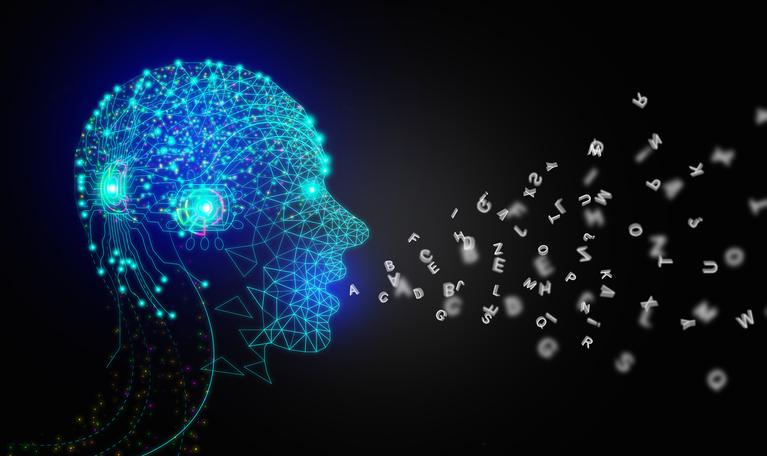AI and the Future of Educational Research: Revolutionizing How We Learn and Innovate
The rise of Artificial Intelligence (AI) is rapidly reshaping every aspect of our lives—and education is no exception. From adaptive learning platforms to automated assessment, AI is offering transformative opportunities for both educators and students. But what does this mean for educational research? In this in-depth article, we delve into how AI is revolutionizing the future of educational research, changing the way we learn, teach, and innovate.
The Evolution of Educational Research with AI
Traditional educational research has often been limited by manual data collection, subjective evaluations, and slow analysis cycles. Enter AI-powered technologies, which are accelerating data analysis, refining personalized instruction, and uncovering insights that were once beyond reach. Here’s how AI is changing the game:
- automated Data Collection and Analysis: AI algorithms efficiently process massive datasets from various sources, providing rich, actionable insights.
- Adaptive Assessments: Exams and quizzes powered by AI adjust in real-time to a student’s performance level, offering a more tailored evaluation.
- Predictive Analytics: By analyzing learning patterns,AI can predict student outcomes and identify at-risk learners early.
- Natural Language Processing (NLP): NLP tools help researchers analyze open-ended survey responses and student essays at scale.
Key benefits of AI in Educational Research
The integration of AI in education research brings a multitude of benefits that empower teachers, students, and policymakers alike. Here are some tangible advantages:
- Efficiency and Speed: AI accelerates the research process, reducing the time needed for data entry, analysis, and reporting.
- Enhanced Accuracy: AI reduces human bias and error in data interpretation and evaluation.
- Personalized Learning Experiences: Adaptive technologies engage learners based on their unique needs, boosting retention and performance.
- Real-time Feedback: Immediate insights enable educators to adapt instructional strategies on the fly.
- Scalable Solutions: AI can analyze and support thousands of learners simultaneously, making educational research more impactful and far-reaching.
How AI is Transforming the Learning Experience
AI’s impact on educational research trickles down to the core of the learning process. Here’s how AI-driven insights are enhancing student engagement and instructional design:
Personalized Learning Pathways
Smart learning platforms use AI to map out individual learning paths based on students’ skills, preferences, and performance.This ensures every learner gets the right content at the right pace.
Enhanced Teacher Support
AI assists teachers by:
- Analyzing class performance for targeted interventions
- Automating administrative tasks such as grading and attendance
- Suggesting engaging activities and resources
Accessible and Inclusive education
AI can help break down barriers for students with disabilities by offering real-time translation, speech-to-text, and customized accessibility tools—ensuring education is inclusive for all.
Case Studies: Real-World Applications of AI in Educational Research
To illustrate AI’s influence on education research, let’s explore a few recent breakthroughs:
Case Study 1: Predicting Student Dropout Rates
A leading university integrated AI predictive analytics into their student details system. The AI flagged students who were at risk of dropping out by analyzing attendance, grades, and extracurricular engagement. Interventions based on these insights reduced dropout rates by 15% in just one academic year.
Case Study 2: Automated Essay Evaluation
EdTech companies now harness NLP AI models to evaluate student essays for grammar, coherence, and originality. This not only saves teachers notable grading time but also provides students with immediate, actionable feedback to improve their writing skills.
Case Study 3: Personalized Learning at Scale
An online learning platform used AI to personalize math tutorials for thousands of learners.By adjusting content difficulty and style on the fly, the platform boosted student success rates by 25% compared to a conventional, one-size-fits-all curriculum.
Practical Tips: Leveraging AI in Educational Research
Thinking of integrating AI into your educational research or teaching practice? Here’s how to get started:
- Identify Clear Objectives: Define what you want to achieve with AI (e.g., better student outcomes, faster analysis, improved engagement).
- Choose the Right Tools: Compare AI-powered research apps, learning management systems, and data visualization tools.
- Ensure Data Privacy: Use only secure,compliant platforms to protect sensitive student information.
- Train your Team: Offer professional development for educators and researchers to maximize AI’s benefits.
- Monitor and Evaluate: Continuously assess the impact of AI interventions and refine your strategies based on real-time data.
By following these actionable steps, you can harness the powerful potential of AI to advance your educational research and create more meaningful learning experiences.
Challenges and Ethical considerations
While AI offers game-changing potential, it’s importent to approach its integration responsibly:
- Bias in Algorithms: Poorly designed AI tools may reinforce societal biases unless they are regularly audited.
- Data privacy issues: Safeguarding student and research data is critical to maintain trust and comply with regulations.
- Dependency Risks: Over-reliance on automated systems can reduce opportunities for human judgment and creativity.
- Accessibility Gaps: Ensuring that all students—nonetheless of socioeconomic background—can benefit from AI tools remains a significant challenge.
Addressing these issues requires ongoing dialog among educators, researchers, technologists, and policymakers to ensure that the deployment of AI in educational research remains ethical and equitable.
The Future Outlook: What’s Next for AI in Educational Research?
The convergence of AI and education research is only just beginning. As algorithms grow smarter and datasets expand, we can expect:
- More elegant adaptive learning systems, capable of detecting and addressing gaps at a granular level
- Greater collaboration between AI and human educators for hybrid teaching models
- Deeper, real-time insights for policy decisions and curriculum design
- Increased access to high-quality education globally, regardless of geographical or economic barriers
Researchers and educators who embrace these advancements will be at the forefront of shaping a more effective, inclusive, and forward-thinking educational landscape.

